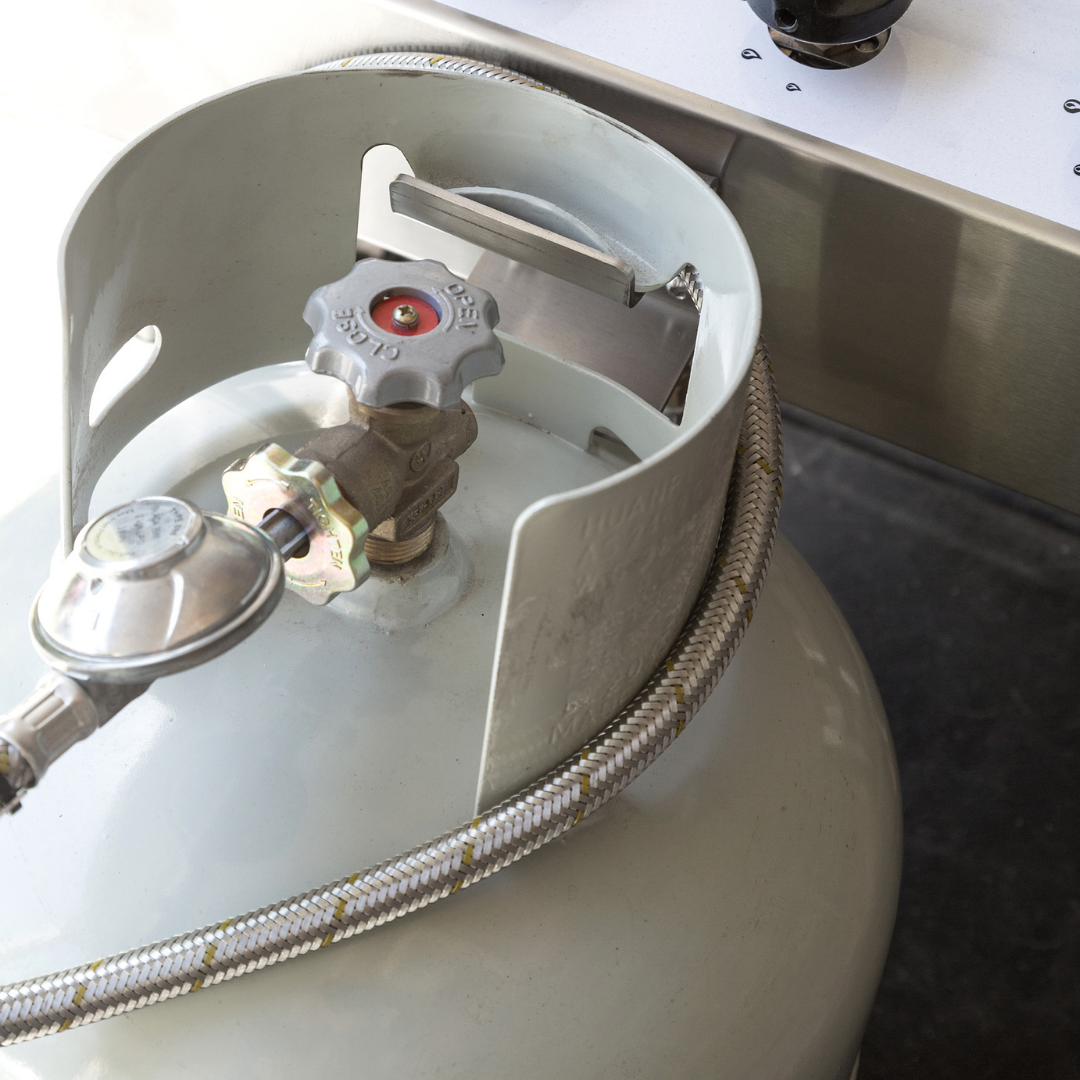
BBQ Gas Safety Tips
It goes without saying that gas safety is no joke. We're lucky that we've harnessed the ability to use LPG in everyday life, such as barbecuing, but that doesn't mean we should take for granted how dangerous it can be if not used properly.
So let's go through a few tips to ensure that you keep yourself and your family safe when BBQing with LPG.
Gas Bottle Storage
First and foremost, never store your gas bottle indoors. This includes garages, sheds and especially inside vehicles. Your gas bottle, whether in use or not, needs adequate ventilation at all times. This is mainly in case of a leak. If you spring a leak in a confined, unventilated area, you're just asking for a big-time explosion. All too often as summer rolls around, we hear news stories like this one.
You should also make sure your bottle is always kept upright and never ever left laying down. This includes quick car trips home from the servo too. If it doesn't fit in your car standing up, don't take it home. Also, if you are picking up a fresh gas bottle, head straight home. Heading off to shop for another 3 hours while leaving your gas bottle sitting in a confined space - not a good idea.
Heat and Ignition Exposure
It's best to keep your gas bottle away from any significant heat sources that could potentially be an ignition source. This includes sunlight, so try to find a nice shady, covered (but still open and ventilated) area to store it in your backyard.
You want to keep it far from anything that carries an electrical current. This means hot water systems, power points, security cameras, light switches, motion sensors, air conditioning units, etc. Also, be careful that you aren't carrying any static electricity when you go to handle the bottle. Try to ground yourself by touching some rubber before handling a gas bottle.
Using your LPG bottle with Your BBQ
If you've just come out of a long winter hibernation and want to use your BBQ for the first time in 6 months, it's important to do safety checks before firing it up. These steps also apply to everyday general use and are handy to know if even if you use your BBQ a lot.
1. Check for pests and rodents like spiders and their webs or mice and their droppings etc.
2. Inspect the gas hose and fittings for any cracks, corrosion or damage of any kind. If any are present, throw them away and purchase new ones.
3. Perform a leak test with some soapy water. Simply mix some detergent and water together in a spray bottle and spray over the gas bottle's neck. If the water bubbles excessively, you might have a leak.
4. Check the expiry date on your gas bottle. All gas bottles need to be inspected every 10 years by a gas specialist to ensure they are operating safely. If yours is past the date you should cease using it immediately and return it to a swap'n'go. The date is generally stamped somewhere on the neck.
5. When operating and in storage, make sure the bottle is sitting on a flat, even surface with no chance of it being disrupted.
6. When you finish using your gas bottle and BBQ, always turn off the BBQ first, then the gas bottle. We used to recommend the reverse, but with the new LCC 27 gas fittings, we recommend the BBQ be turned off first.
7. Always detach the bottle from the BBQ when not using, and screw a safety cap into the gas bottle fitting to stop anything from getting in or out.
What to Do If You Do Have a Gas Leak?
If you have a gas leak, it's important to stay calm and know the appropriate steps to take to avoid a disaster. Credit to Elgas for a lot of the information supplied here, they are an excellent resource for gas safety.
Here are the steps...
1. Shut off the cylinder to stop the leak, if it is safe to do so.
2. Keep the area well ventilated. Remember, LPG is flammable and heavier than air, so it can take some time to clear the air completely.
3. Keep all ignition sources far away and do not operate anything electrical in the vicinity.
4. Do not get your bare skin in the way of any stream of gas and wear thermally insulated gloves to handle the bottle.
5. Let the cylinder leak until it is empty, then dispose of the empty gas bottle at your local waste and recycling centre.
If the leak has escalated and fire is present, follow these steps...
1. If it is safe and undamaged, close the valve.
2. If it is not safe, call the fire department ASAP.
3. DO NOT attempt to distinguish the flame with water.
4. Keep your distance and wait for assistance.
For added safety, install a gas safety valve in your gas bottle. These will not only show you how much gas you have left in your tank, but they will prevent leaks with an emergency gas shut off.
